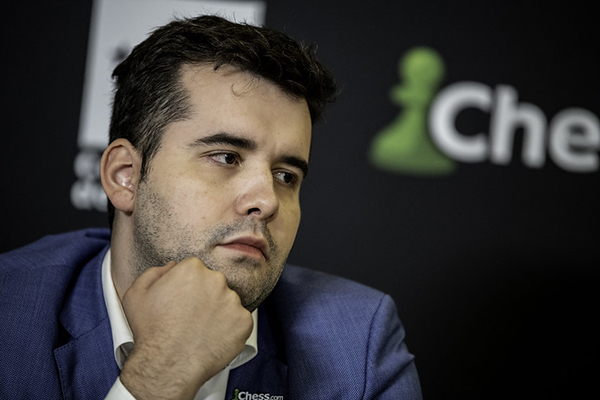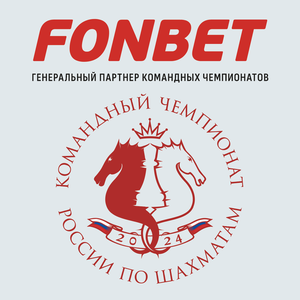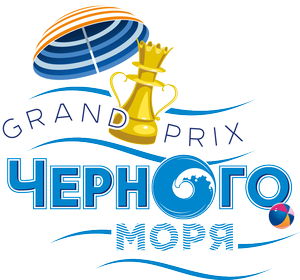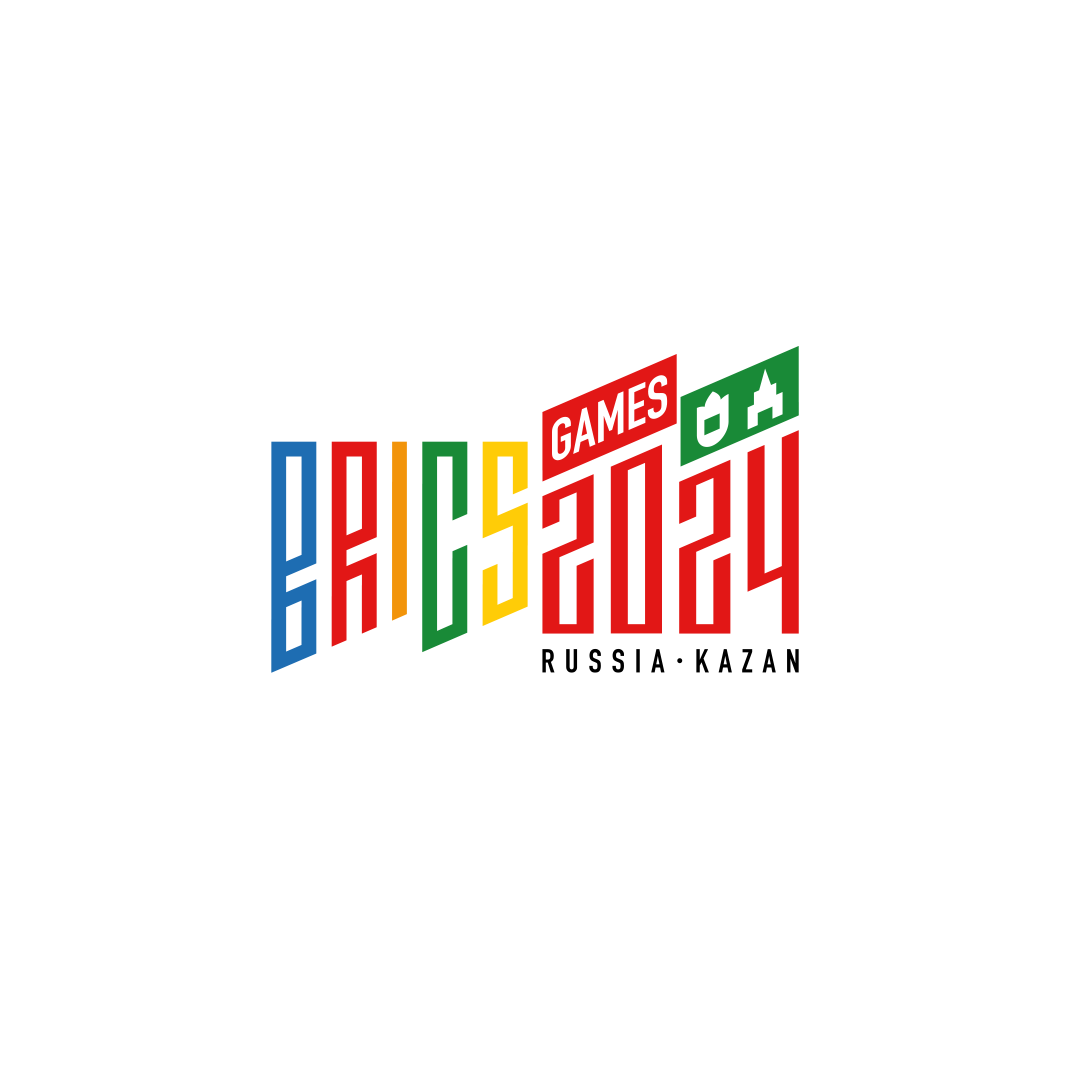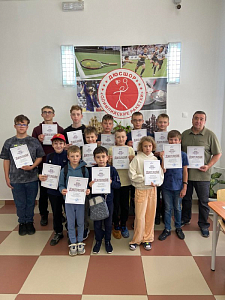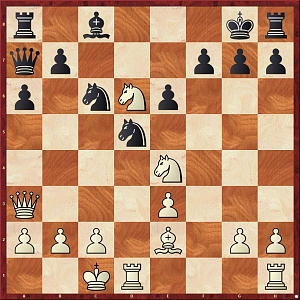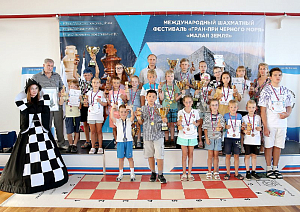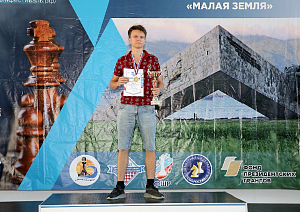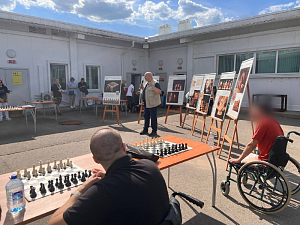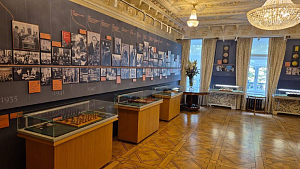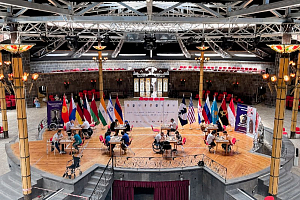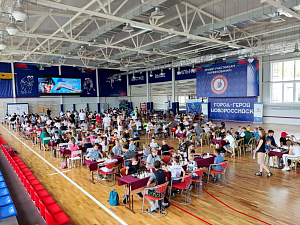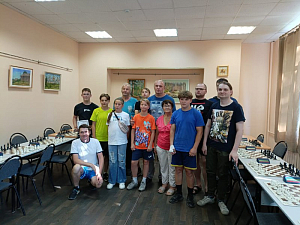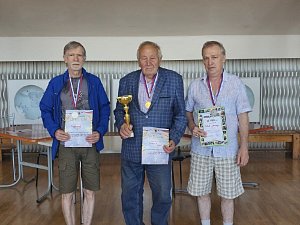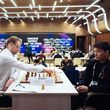Ian Nepomniachtchi: Growing More Ambitious With My Goals
The FIDE Candidates Tournament winner is interviewed by Eteri Kublashvili
– Ian, my congratulations on your victory!
– Thank you!
– Have you had enough time to catch your breath yet or are you still full of the tournament?
– I have. However, I cannot say that I am eager to fight tomorrow or the day after. I think I still need some time during which to measure out chess in doses. My next planned event is a rapid tournament in Zagreb, which is a stage of the Grand Chess Tour series. I hope to regain enough strength by the time of its beginning.
– What was your mindset going into the Candidates Tournament? Where and how were you preparing? How were you acclimating yourself to the local weather?
– There is so much to say that I do not even know where to start from. As for my mindset, I did not rank myself among the favorites, which had also been the case two years before. This is only logical because this is a very strong tournament, of course. Some participants are more experienced and steady than others. First of all, I found it hard to evaluate my own form since I had practically not played classical chess following the world championship match. The tournament in Bucharest was more of a warm-up nature and rather designed to feel the rhythm, as they say, and to evaluate my performance in general. Being one of the stages of preparation, it shaped far from any outstanding way for me. It was not much of a pleasure, but at least I would not make a tragedy out of it.
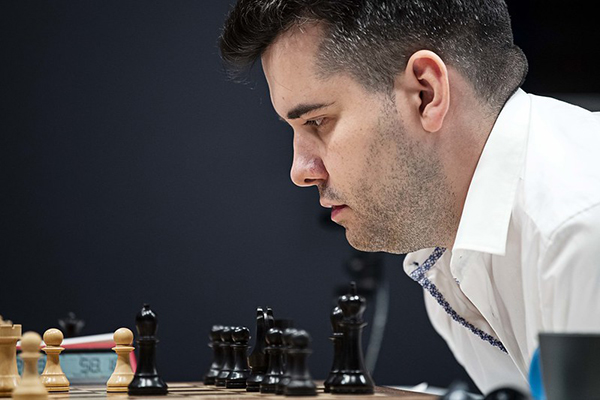
By way of moving smoothly on to the topic of preparation, I can say that all winter time since the new year and the beginning of spring I have been focused more on health and recovery, which made it impossible to get down to preparation well in advance. We gradually delved into the preparation work from the second half of March. A huge number of new ideas was prepared specifically for the match, while the main bulk of old ideas remained unchanged. In April, we organized a small training session in the near-Moscow region. It was followed by the Bucharest tournament, and, to avoid logistical difficulties, Ildar Khairullin and I immediately flew to Spain directly from Romania. There we had had some rest first, and later we were joined at the training session by Nikita Vitiugov and Peter Leko, the latter coming out of his two-year isolation. As far as I understand, he has never left his hometown since the beginning of the pandemic. Therefore, it was a pleasure to see him in person again.
The training session proceeded in a more or less lite mode. Needless to say, it wasn't exactly a vacation, but compared to the match preparation the schedule was, of course, extremely mild, at least for me. And yes, Nikita's return to the team was very timely – he participated in preparation for the second half of the Candidates Tournament…
– Didn’t he work at the match itself?
– He did not, he had somehow got away with it at the match and returned triumphantly for this event, let's put it this way.
– In an interview given immediately after the tournament winning you said that one of the match conclusions was that you need to maintain a balance between rest and work, and that back at the match you had worked too much and had gone to the match feeling exhausted. Have you managed to apply this principle here at the Candidates Tournament?
– It seems like I have. At least, as far as I recall now, I had arrived at the world championship match in a strange state, when seeing more chess was already a challenge. Objectively speaking, my time management, schedule of games/work/theoretical training and of the over-the-board part – everything was extremely underwhelming going into Dubai. I paid for it in many ways. I have managed to learn many lessons, but the main takeaway was about the importance of not getting tired before the tournament even begins.
– So, you didn't rank yourself among favorites going into the tournament, and various experts also voted for Ding or Caruana. Various skeptical opinions about you circulated on professional media outlets. Did you read up on any materials with forecasts in the chess media before the tournament?
– I can't say that I am subscribed to all similar updates, but I definitely saw something. In fact, it feels even better with no additional pressure, public expectations, which must have made the tournament more difficult for some other players.
– Well, when you read something of the kind, doesn't it make you angry?
– In 99 percent of cases, I treat it as some sort of wonderful humorous fiction. It almost always elates my mood because more often than not the most serious breakdown of such information comes from people not always entirely familiar with the subject. Indeed, experts never go wrong: that's the way it is (smiling).

– During the tournament you looked much stronger, steady and purpose-minded than other players. Did you share that feeling yourself?
– It is hard to say, because there happened several extremely challenging games along the way that could have ended worse than they did. I think that the first half was of crucial importance because, all in all, despite the training nature of the Bucharest tournament it left me in some doubts about my form. I felt like I should have scored two more points there, but I ended up lucky enough to have held my ground against Rapport in the last round.
There is clearly never discounting such a thing as starting jitters. Taking its special toll in such competitions as the Candidates Tournament, it is far from each time that it allows playing yourself into the game right from the start. I did not make it, for one. Game one, despite its positive outcome, is not the most outstanding example in terms of quality. It is, of course, interesting and original, but both players could have probably did better.
Game two was a very complicated one. Fabiano uncorked what I will not classify as a completely garbage idea, but an extremely risky one, in which Black miraculously keeps his ground by fighting back in the main line. I think that the line we are talking about is a forced one: White has a rook, a bishop and a pawn; Black has a rook and two pawns on the same flank, but since the queening square is of the wrong color (the bishop is light, and the h8-square is dark), the game ends up in a draw. All in all, it is not everybody's cup of tea at all. He clearly did not expect me to come prepared for this continuation. We really did not study this line through, because it was not something that Black would obviously want to go for. However, I must give due to my opponent: I thought I was playing enterprising chess out of the opening, to which he reacted very strongly. That said, closer to the time control he would not go for 32 ...Rxb2 for some reason, the move I thought begged to be played. That he would later need to come up with a rather difficult tactical justification is an entirely different matter. In general, he might have thought that since he had won game one, a draw with the black pieces in game two should be fine. I was even more happy: it seemed to me that I had been completely outplayed, and that a draw was a decent result after all.
There followed a rather uneventful draw against Teimour. He must have been taken by surprise with my choice in the Catalan opening, and somehow the game fizzled out very quickly. In fact, it sort of turned into a rest day. After that, it came to me that I had already held two black games out of seven (which is not that bad at all), haven't lost any game yet. Therefore, I started playing much more confidently from then on. It was not a plain sailing, needless to mention.
– Can you point to any turning point? At the finish, or maybe in the second half?
– I believe the first game with Nakamura was of crucial importance. It might sound funny now, but back then we were extremely surprised by his choice of 1.e4 for some reason. I decided to sidestep a little in the opening and gradually found myself in a completely fine position. Then I recalled a similar line and carried out, to put it mildly, an illogical maneuver that landed me in a nearly hopeless position out of the blue. He burned much clock and, luckily for me, decided to go for the move repetition to bring the time control closer. Then he gave away some of his advantage and loosened his grip, leaving himself with only a minor edge. He was apparently upset and unwilling to continue the game. It was crucial to get past these emotional roller coasters, ups & downs, when you confidently score the day before, then follow it up by underperforming as Black and losing the game – it would have been nothing to do you any good, of course.
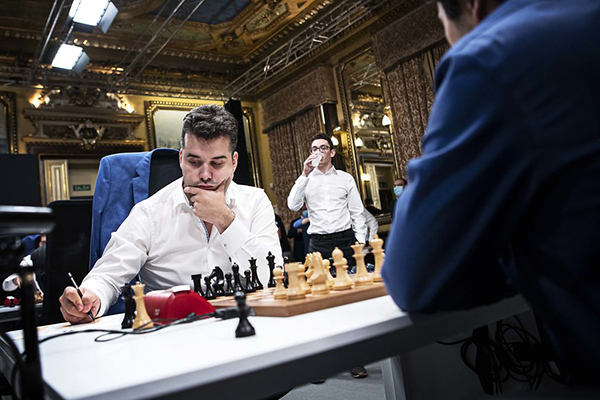
Likewise, probably in round seven against Rapport I somehow felt that the wind blew right into my sails because I would have been very happy with this impromptu rest day, which could have happened should he have gone for the repetition of moves.
– To be honest, it surprised everyone.
– I mean when he started burning so much clock… I have a theory about why he decided to go on fighting, but let it remain a theory. At the previous tournament, going into round seven, I had also scored "plus three", but there had been a poor game against Maxim, who played that game very well. Therefore, I opted for a more reliable opening here: not the Winawer Variation, but the Petrov’s Defence. This is probably where the fundamental difference laid.
So, I defeated Rapport to score "plus four". Of course, this is too much for the first half, but at the same time Fabiano scored "plus three". He outplayed Radjabov that day, who opted for 1.e4 c5 2.Nf3 a6 – a rare guest at the high level, I would say. Even though the main events of their game developed well after the opening stage, it is somewhat unexpected to see a person known to play the Berlin variation go for c5 and a6 instead.
– Has your preparation for the match become a significant asset going into the Candidates Tournament? This is yet another topic that many people discussed.
– It likely has. We have done much work, and it is very likely that some part of it has still been of use. My understanding improved, maybe I began to play a little better. I spoke with Peter Leko almost immediately after the world championship match, who said that we had time to at least digest the newly-acquired material. By and large, very little time was devoted to the match preparation. Peter also referred to Vishy Anand as an example, who had gone down in the 2013 match, but then bounced back by taking the 2014 Candidates Tournament in Khanty-Mansiysk. Back then the Candidates Tournament, if I recall correctly, was taking place almost in February-March, while the world championship match itself ended in November. That is, Vishy had even less time than I did, but it was enough to embrace the volume of information accumulated for the match, digest it all without the eternal time pressure and then apply the knowledge gained over-the-board.
– You practically make no secret about your seconds. Most of them have been with you since the previous candidates cycle, part of them went on to take part in the world championship match later on. At the same time, players often look to hire someone young, a 20-year-old to "add fresh blood". Do you share this point of view?
– I am not yet old myself (smiling). Jokes aside, I share this idea, but again: during the pandemic year we were preparing for the second half of the Candidates Tournament, and later for the match – it's a little more challenging to arrange than it might first seem. Besides, there exists such a concept in part that you are unwilling to change the winning line-up, which also influenced me to a certain degree. On the other hand, a fresh view of things is always beneficial, no doubt about that.
– Do you rate cooperation with the trust-worthy people as something very important for you after all?
– This is not so much about trust-worthiness as about good, kind, friendly, or at least some respectful relationships among all team members. It is very important that team members are united by the idea rather than being mercenaries.
– You mean lack of any desire to gain something for oneself?
– Roughly speaking, yes. It should be so that your team were not made up of hired employees who had done an excellent job. It is crucial that they be united by something else: preferably by some idea, as well as by good relationships.
– Why would not Ildar shave himself? Is it a superstition?
– You'd better ask him. By the way, he did shave before the tournament.
– A funny picture went into circulation just by the end of the tournament.
– That was a picture from the training session before the tournament.
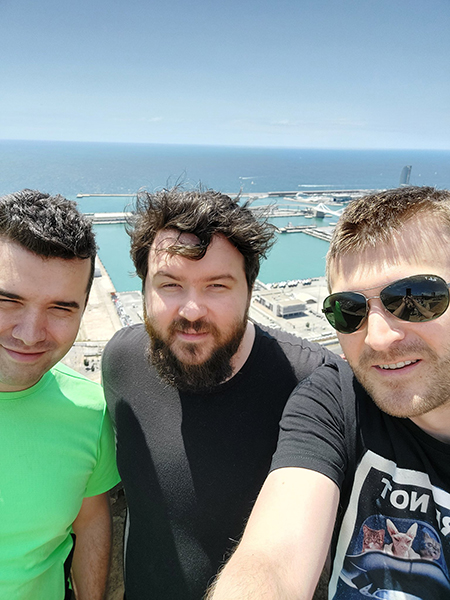
– Well, I see now.
– Before the start, Peter Leko was already in Hungary, Ildar shaved himself, therefore...
– There was much criticism of the participants during the tournament – from Vladimir Kramnik, for example. Do you share the opinion that this Candidates Tournament's level is weaker than expected and weaker than its predecessors?
– Judging from the outside is easy. I can say for myself that when commenting on the 2018 Candidates Tournament in Berlin I spotted moments where the participants' play could be improved. There was no lack of hard to explain decisions. I think the first rounds set the tone for these talks, which really turned out to be quite chaotic: there were many games that produce a strange impression, to put it mildly. However, it seems to me that later everything got back on track, more or less.
If usually at stake are such things as rating, money or something else, people tend to play calmly. On the other hand, the main feature of the Candidates Tournament lies in its very format, which implies a permanently aggressive mindset. I do not want to say that this aggression is entirely unmotivated, but ... At some point, this year's edition of Caruana very much began to remind me that of Kramnik from the Berlin Candidates Tournament. They played each game until the last bullet, would not spare themselves and opted for the super-principled openings, which are hard to recommend from the point of view of the over-the-board play. It may be that these openings are good, but the pace and strategy set are very hard to keep up with.
It so coincided that in the second half of the tournament I was already enjoying an impressive plus, which, apparently, prompted people towards taking additional risks in general. The Nakamura – Caruana game seems to confirm the above. I would have unlikely chosen such a line as Black, even for a must-win situation. I find it rather impractical, to say the least. You could probably trace it in Fabiano's further games as well.
At the same time, as is usually the case, the majority of participants fell out of contention (although there was still a hidden motive to fight for the second place), following which they slightly abandoned this“chess fever”, if you will, and finished the tournament playing their normal chess.
– Radjabov, for one?
– Indeed, Radjabov is a perfect example. It is of interest that Nakamura, who seemed to me as initially very calm about the tournament, underwent a transformation in the course of the last round game. I don't know what was going on with him, but he declined the repetition and then followed it with a strange move 35…Bd8, to put it mildly, the point of which is hard to fathom. He probably came up with some explanations later on, but it is obviously the tension that took its toll with him to a greater degree.
I think that those who had had some prior experience of such a tournament had a head start in some respects. It probably played into my hands: I tried to play chess throughout the tournament. Besides, the tournament situation favored me in terms of no need to squeeze whatever was there in the position. Therefore, I just played calmly, whereas the majority of participants were obviously doing their best to play each game for a win.
Radjabov scored plus three in the second half after having finished the first half with minus two. Nakamura's tournament performance was very smooth in general. If I recall correctly, in an interview after a short game with me Ding Liren claimed that he was going to finish the rest of his games as though it was any regular tournament, immediately following it by scoring three wins in a row.
It's not that the secret ingredient is just to play calmly – there is probably much more to it than that. We undoubtedly need to keep in mind the purpose of our getting together, at the same time never oblivious to the intrinsic laws of the game. Bending the position across the knee and disrupting the ordinary course of events is sometimes asking for it.
– High hopes were pinned before the tournament on Firouzja, and only the lazy would not voice his opinion about Firouzja's playing as many as 200 bullet games during the night closer to the tournament finish line before the game with you. However, he had no more prospects of success by that time, in fact. Was it a way of getting relaxed?
– It was, in its own way. He went on to finish the tournament a little better, though: in the last round he defeated Fabiano, had saved an unpleasant position against Duda and had drawn against Ding. But again, it's all very easy to make the theory fit the data and the answer you need. If he were to defeat me in those two hundred night games, everyone would have exclaimed: "This is brilliant! He is among the greatest players! Indeed, what an original way to relax, but look how brilliantly it has worked."
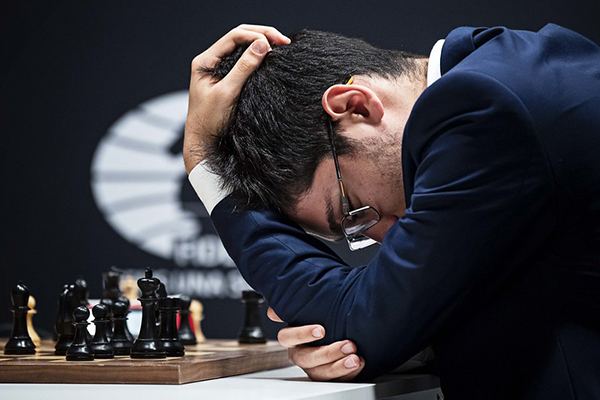
– Sure enough. And what is your take about the night bullet? Could you play like that yourself?
– I could.
– I mean, would this idea have ever crossed your mind?
– Let us say that at some unsuccessful rapid chess tournaments I can afford a couple of games. It is just that I do not like bullet chess in general; if I want some mouse-clicking, I prefer other games: shooter games or Dota, for example. In my opinion, there are many way more interesting computer games than bullet chess. However, I sometimes play bullet just to get the feel of it. There were such tournaments as, for example, the Grand Chess Tour stages in Côte d'Ivoire or Kolkata, in which I my game did not go at all well for me in the first days because I burned too much clock, and so on. Therefore, to defeat any opponent in a couple of games does not in general mean going in a wrong direction.
As the saying goes, "alcohol in small doses is harmless in any amount." Likewise, it would have probably been fine to relax like this in small doses, but when in a state of such thirst for bullet… They say that Firouzja had refrained from playing for six months, and then, not unstrangely, it all came out like a flood. I do not think it did him any good. I am unwilling to criticize him, but in my opinion, he unlikely played me any worse than any preceding game no matter how much they reproached him for the g4 and h4 moves. His game against Nakamura defies any description in words: taking 10...gxf6, choosing the opening setup… In general, he made a lot of strange decisions during the tournament both in and outside of the opening stage. He was probably influenced by the hype around his person, by Carlsen's statement, and so on.
– Do you think Carlsen's statement could really cause that much influence?
– Still waters run deep, but I suspect that it could. It was hardly of any good service to him. Looking at how he played, some of his decisions are really beyond me. It was clear from round one that he wanted to play each game for a win: he opted for the dubious sideline of the Vienna variation against Radjabov, in which White gets comfortable play with the minimum amount of knowledge. All in all, this is what it really happened in their game. He later tried to create maximum problems for his opponents in each game, but it turned out that he rather created them for himself more often than not.
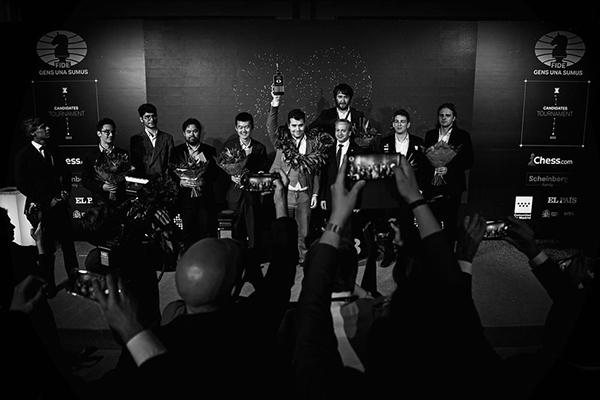
– We switched our attention to other players, and we need to get back to you. You had done much physical training going into Dubai. What is the current situation in this respect? Did you do any physical training before Madrid?
– It was more about health than about sports that I was busy with going into Madrid. It did not get along well with the active training process. While we took it easy at the training sessions in the near-Moscow region in this regard, the training sessions in Spain featured very long walks along the coast. It seems fine to me, there is no need to spend much time in the gym by all means. I still need more sport activities, but within reasonable limits – one of the takeaways from the Dubai match.
– Now that we have mentioned sports and Madrid, who did you root for in the Champions League final?
– In our team, Nikita Vitiugov is an ardent fan of Atletico Madrid, and I root for Barcelona.
– That means rooting for Liverpool.
– If proving from the contrary, then the answer is yes. Liverpool is not one of my favorite teams either, but I was rooting against Real Madrid in this match. Nevertheless, the Royal Club, sided with by great luck, did demonstrate a great will to win, saved several nearly failed matches, and must have rightfully took the title.
– It may well be the case. Let us get back to the topic of chess. Keeping track of your tournament from far away, Madrid produced an impression of a wonderful chess atmosphere, of everything being fun and beautiful. Was it really like this?
– I played several times in Spain. Those were the children's championships of 2001 and 2002, a small round-robin in Pamplona of 2008 and the European Cup in Bilbao. All these tournaments, let's put it like this, did not cause much splash with the spectators. Conversely, those who played in Linares say that there had really been much attention from fans. In general, fans from the southern countries – Spain, Italy, Latin America – are probably more emotional than us, northerners.
– It sounds funny – northerners!
– But this is true from the geographical point of view. Therefore, talking about Madrid, I can add that I was extremely pleased to see this much attention. The number of fans was ever growing to the extent that by the end of the tournament it became really impressive and clearly exceeded the capacity of the small audience hall. Several dozen people were standing there all the time, shouting out players' names, and rooting for someone. I try not to communicate before the game, but it is worth mentioning.
– Giving out autographs, taking pictures with fans…
– Yes, autographs, pictures, good wishes and the like. An all this despite merciless heat, mind you.
– Was the heat taking its heavy toll on you and other participants?
– After all, "we, northerners" are not used to +40. When +40, you are looking forward to a total siesta, to lie flat and go nowhere. We were obviously not playing outdoor, but even as little as walking from the taxi to the playing hall was already not a great thing in itself. I was Initially under the illusion that we would enjoy pleasant walks before the games, but on arriving at the venue and getting used to the local weather, I realized that to cover those 700 meters by taxi than on foot was a much better idea.
– Have you received many congratulations? Which on was the most unexpected, the most extravagant?
– I never sort them out like this, each one is a pleasure in its own way.
– Have there been any surprises?
– Not that I recall any.
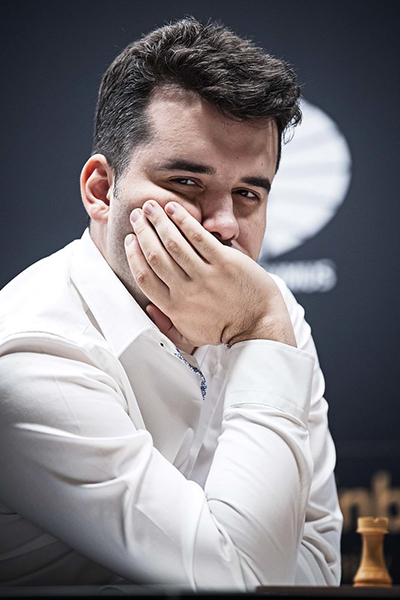
– Let us talk a little about the upcoming match. The main question that everyone is asking is whether Carlsen is going to play. Do you think he is bluffing or is he tired of the matches indeed?
– At present my input data is as good as everyone else's. Let us put it this way, when heard back in December for the first time, it seemed more of a classic story to me designed for promotion.
– Of PR nature?
– Well, not quite. For example, we have this legacy from boxing and MMA stars. It is in these sports to make people talk you into not going away, to bargain for better conditions for the upcoming fights, and so on. But then Magnus came up with a more detailed explanation of his position. He might be unhappy about the format. That said, I think that its changes need to come about at the cycle beginning with everything else taken into account as well.
– Does this format appeal to you, or do you think that the championship cycle system should be organized on a "more fun" basis?
– If measuring everything in terms of fun, then the Brazilian carnival is a perfect match rather than classical chess. On the other hand, the charm of classical chess is in a certain tradition of running world championship matches, which, roughly speaking, goes back to 150 years ago. Chess, like history of humankind, has clearly weathered many storms, but you hardly feel like turning it into a show. The above-mentioned boxing has abided by the same rules for so many years now.
As for time format, it is always on the discussion agenda. However, if talking about the Dubai match, for example, I didn't really like it that for some reason they had introduced three instead of two games in a row. The way I see it, FIDE was after increasing the number of games, but there was an agreement for a given number of days with the Expo exhibition, which was more difficult to renegotiate than to change the match schedule. Thus, an extremely cute theory came into existence about more viewership of chess broadcasts on Sundays than on weekdays. Sutovsky told about this, if I recall correctly. It may well be the case, he should know better. But in general, the "two games – rest day" format is quite reasonable. The number of rest days can be clearly increased or decreased, but this is a world champion title match in classical chess in the first place. Therefore, it probably makes it only reasonable to play classical chess instead of pentathlon: classical, rapid, blitz, bullet, Fischer chess… This will already be a unique title of some absolute, universal champion. There is no shortage of titles that can be introduced, but it's worth focusing on existing ones for now.
– If Magnus refuses, you have to play Ding Liren. What is your take on him as a potential opponent?
– In my understanding, in terms of purely chess assets (although it might sound like too loud a statement) he is hardly any inferior to Magnus. He has, of course, some stronger and some weaker sides. He had a colossal series of 100 defeated games against the strongest field! In general, he has proven his class of an extremely strong GM more than once in super tournaments. However, it is hard to say now what could and what would have happened if the pandemic, self-isolation and so on had not stepped in.
Thus, it is very hard for people to go out of China now, and, in my opinion, that is why their national team will not take part in the Olympiad. Logistically speaking, as far as I understand, it is easier not to participate than go through double or triple quarantine. For the sake of discussion, they need to fly to Beijing and stay in quarantine for two weeks, then fly to their hometown and isolate themselves for yet another two weeks. Give or take, that amounts to one month in quarantine, and they have apparently decided that it is too much.
Ding Liren is undoubtedly an outstanding and one of the strongest chess players at the moment. To be honest, I would not count the chickens now because the decision, as far as I understand, has not been taken yet.
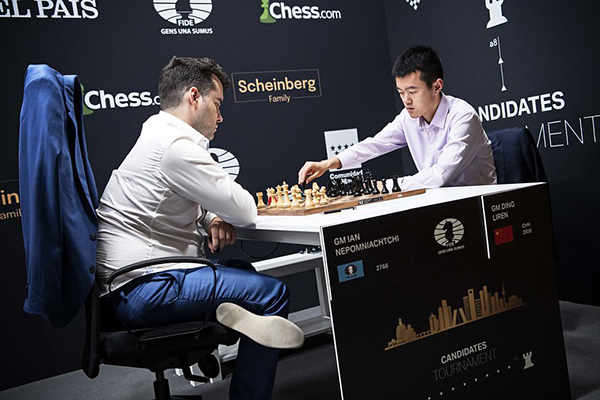
– The expected date seems to be July 20.
– As far as I understand, it is Sutovsky who informed that the answer was needed by July 20. However, we had probably better ask the FIDE President anyway. In any case, this is a sensitive issue, and we need to be patient for news. Let me repeat myself: I have no more information than any other chess fan who follows the news.
– You have won the candidates tournament twice, and in a row at that. There is a number of chess players who also won twice – Smyslov, Spassky, Karpov, Korchnoi.
– Smyslov, as far as I remember, also won two tournaments in a row. Others yet succeeded in a row of candidates' matches. I would not focus on the achievement uniqueness: it happened the way it happened.
– Can you name your favorite out of the above-mentioned Soviet chess players? Maybe one of them appealed to you more than others in your childhood?
– As a child, Alekhine and to a lesser degree Tal appealed to me. I have and I am still trying…
– Not to create an idol for yourself?
– Yes, and this is a correct approach overall. It's just that you can learn not from the games of world champions exclusively. These games are probably worth learning from in the first place, but I just try to learn something from everyone. World champions are really something set in stone. As Evgeny Ilyin put it: "Botvinnik is an epoch in the history of chess." That said, each of the above-mentioned is likely to personify the chess era. And we are no-one important (smiling).
– No matter how modest you are, this victory is a great success. What influence can it have on children's chess development, for example?
– First of all, I am happy to have made my fans happy. I would really like to set up a grandmaster school like that of the legendary Botvinnik with probable adjustments for modern realities. When paying attention to the huge success of young chess players of India or Uzbekistan, I cannot but recall that the youngest Russian grandmaster is 19 years old.
– You said in one of your interviews that the incentive to win the match could be, for example, as follows: now that you have achieved your main goal you are free to take your time and relax. Are you still of the same point of view going into the second match, or has your approach undergone any changes?
– I started off with the following approach: to justify the entire amount of time and efforts invested you need at least to play the match. That is, it was some sort of my minimum program: I play a match, and be as it may. As in the anecdote: "I just passed the salt." However, having played the match, I clearly realized that this was not enough. One program finished and another came to replace it. Having said that, I am not a planner by nature, I do not see the big picture and in some ways I try to take each day as it comes.
– To play game by game…
– No matter how boring it may sound, the answer is yes. However, the goals changed when I finished the match and the goals did not materialize. This is not a reason to be upset at all. Besides, the present goals can be said to have changed towards more ambitious ones.
– I wanted to ask a related question. The month of July marked the 50th anniversary of the legendary Fischer – Spassky match beginning. Back then, chess was the talk of the town, grandmasters used to be among main newsmakers. Does the crown match nowadays carry equal historical significance as before?
– This is not an easy question to answer. I think that at that time it was about a confrontation between the USSR and the USA, it was largely about the Cold War. I hope that nowadays it is more about the contest between people and about sports.
– So, if Carlsen decides against playing, will not there follow a public outcry similar to that when Fischer refused to defend his title against Karpov?
– In my opinion, these stories differ slightly because Carlsen does not refuse to play chess. As far as I understand his claims, he's just tired of the matches – regardless of the opponent, of the format, but just in general.
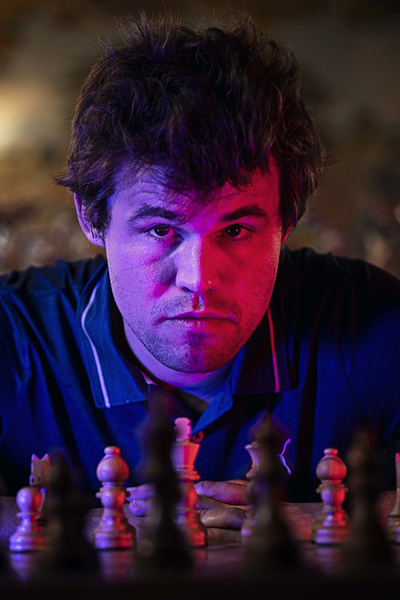
– "I am tired, I am leaving?"
– I am not leaving, but go on playing, having set my own goals and objectives. I want to score 2900, for example, but I want to play the match in a different way. In fact, the match, like the Candidates Tournament, is a big challenge and a heavy undertaking. Of course, if you end up winning, then it is great, and you get your reward. But the very process of preparation, the play itself in a tournament or a match is a great stress.
– And what about other less demanding formats? For example, Dmitry Andreikin and Vladimir Kramnik have clashed recently…
– Superb! It so happened that that Saturday's tournament on Chess.com coincided with the rest day, so I allowed myself watching all sorts of broadcasts. I see Kramnik playing, and I think: "Great." And I watched the game that caused such a splash. Overall, I follow this topic's development with great interest.
– What point of view do you gravitate toward?
– I don't know, I am still watching and stocking up on popcorn. A few years ago it used to be popular when a rapper recorded a diss on another rapper, then there was a diss on a diss, then a third person would write a diss on someone else's diss, and now, as I see, several stages have already been navigated. I watched two videos with Dmitry Andreikin and an equal number, or even more, with Vladimir Borisovich. It seems that now the ball is in his half of the field, so I am looking forward to seeing the continuation!
– You have already mentioned Zagreb when talking about your future plans. Can you add something else to it?
– If they give me a visa, I will probably fly to St. Louis for the Grand Chess Tour event. This is the end of August – beginning of September. If this is not going to come about, it will not surprise me and I'll start thinking about my future plans. As for now, Zagreb is in store for me, and then we'll see.
– Ian, I thank you for this interview and wish you every success!
– Thank you!
